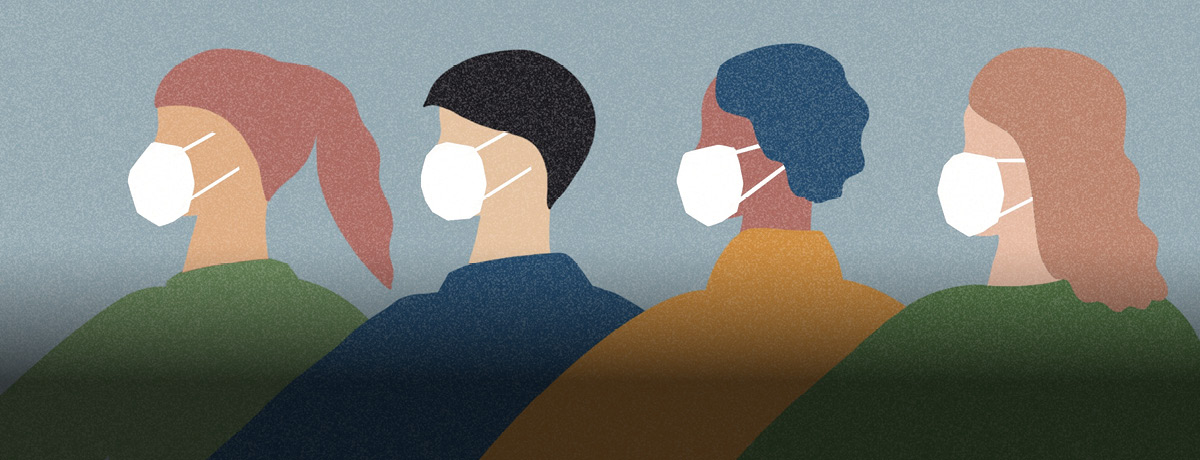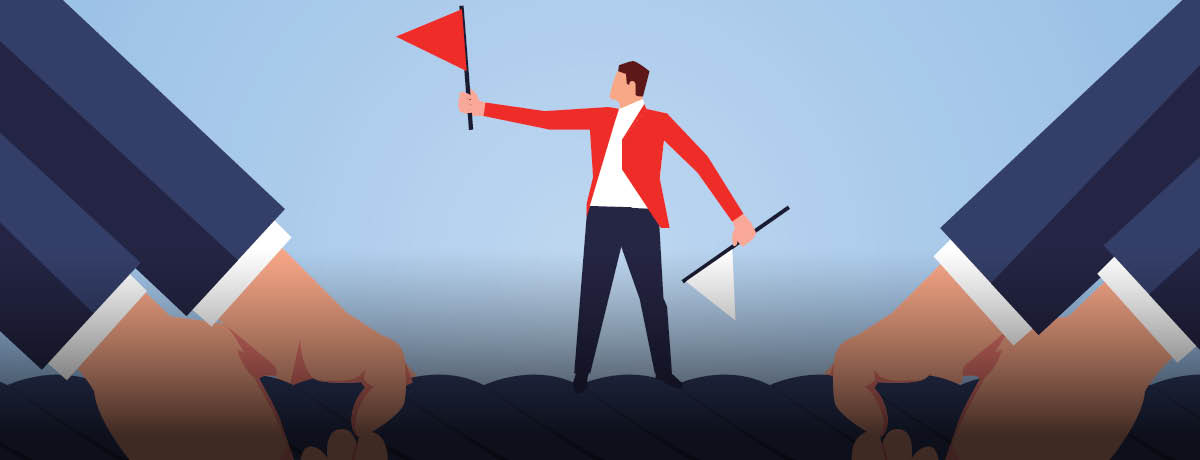Written: July 3, 2020 | By Janice Rubin
In Ontario, where I work, we have just entered stage 2 of re-opening the economy, which includes allowing people to return to workplaces that have thus far been closed. Even if a business was deemed essential, and employees continued to work remotely, now that things are “thawing” we anticipate that more employees will return to the physical workplace.
With this shift, my colleagues and I have put our minds to whether employers can expect more workplace complaints or fewer, and, given this unique moment in time in which we find ourselves, what will these complaints, and subsequent investigations be about. Here are some of our thoughts:
Volume
Will these uncertain times mean more complaints from employees or fewer? On the one hand, we know that fear, stress and anxiety, all of which have been common reactions to the pandemic, do not bring out the best in people or in their conduct at work. In addition, any kind of change can have a huge impact on how engaged people are at work or with their colleagues. Remote working arrangements, with people talking to each other from little boxes on screens, mean that the small points of connection and affiliation which contribute to healthy relationships, or smooth over points of conflict, are not there. All these factors suggest there will be more complaints.
On the other hand, uncertainty about job security might dampen people’s willingness to make a complaint and proceed to investigation for fear of rocking the boat. On a more optimistic note, perhaps absence will indeed make workplace hearts fonder, and colleagues will treat each other with more appreciation and respect and there will be less workplace conflict.
Our own prediction? On balance, the factors that contribute to complaints being made outweigh the ones that mitigate against them. Net, we predict that there will be more workplace complaints¹. The question is, on what?
Racism Complaints
In our experience, there is a close relationship between societal shifts outside of the workplace, and what happens within them. We saw this when the #MeToo movement prompted many employees to come forward to complain about sexual harassment and violence. We are beginning to see a similar phenomenon in terms of the impact of the Black Lives Matter movement. If our office is a barometer of sorts, with the increased social and media focus on anti-Black racism, racialized employees may feel more comfortable asserting discrimination and harassment complaints about outright racist acts, or more subtle forms of racism such as micro-aggressions.
While the public discussion is primarily about anti-Black racism, employers need to keep in mind that during the pandemic, there has also been increased anti-Asian hostility. According to a recent survey by the Angus Reid Institute,² half of Canadians of Chinese ethnicity reported being called names or insulted as a result of the COVID-19 outbreak, with 43% reporting that they have been threatened or intimidated.
Let us not forget anti-Indigenous complaints. Prior to the pandemic, we have seen a steady increase in the number of investigations of this kind. We believe that concerns about racism expressed in the workplace, and in other institutions, regardless of the specific type of racism, will likely prompt more of these complaints.
Family Status Accommodation Complaints
There is no question that family life has been very different during the pandemic. Parents of small children have had the supports of school and childcare eliminated or reduced in some circumstances, and adult children may face enhanced responsibilities to take care of elder parents or grandparents. We expect that employees faced with less support and enhanced responsibilities, in a context of great uncertainty, will look towards their employers to accommodate them and provide workplace arrangements that are increasingly flexible and responsive to their individual needs.
This task will be a challenging one for employers for several reasons: First, unlike in the past, where family status accommodation requests have come one at a time, and have been relatively infrequent, the demands now may be multiple, and will continue until the pandemic is over. An employer may face more operational difficulties as a result and be less inclined to say yes. In addition, there is still some uncertainty about what the family status accommodation test is – with different iterations from the federal jurisdiction and from Ontario and BC.
In this context, we can see instances where an employee has made a request for an accommodation that the employer assesses it cannot meet, which then results in a complaint, and subsequent investigation based on a failure to accommodate.
“Covid Conflict” Complaints
We anticipate seeing more complaints that arise from the changes made to the workplace due to the pandemic itself.
For example, we can imagine a dispute between a subordinate and a supervisor about whether the subordinate’s work, done while working remotely, is up to par. If the supervisor’s criticism is particularly harsh or unreasonable, this dispute may later be characterized by the subordinate as harassment. What about complaints from employees who assert that they have been treated unfairly in the re-allocation of job-related duties and opportunities as compared to others?
As more people return to the physical workplace, we anticipate that there will be disputes about whether colleagues adhered to physical distancing rules, whether they should have been wearing a mask when interacting with others, and whether they should have come into the office with a cough or a sniffle.
Then there is the prospect of people acting out in a more egregious way. In April, many of us read a story in the media that described an alleged interaction between a man and a clerk at a store. According to the report, the man intentionally coughed into the coins he handed the clerk and said that he hoped the clerk would get coronavirus. The man was ultimately charged with mischief.³ It is not a far stretch to imagine a similar interaction at the workplace, involving a phone, a stapler, or a coffee mug. Not only would this give rise to a harassment complaint, query whether such an act would constitute workplace violence in that it is an act intended to harm others in the workplace.
Respect at (Virtual) Work Complaints
Week after week of working in a workplace that is operating virtually is difficult and stressful. We wonder if this is resulting in personal interactions that are less patient, less kind, less forgiving, and ultimately less respectful. Think about a call that does not go well because the two participants cannot read the non-verbal cues that one is hurt, or the other has been misunderstood. These cues often prevent an exchange from escalating. When you are talking to someone in a little box on your screen, often with a time delay, these cues are not there. If this conflict is left unchecked, we can see such a situation escalating to a formal complaint.
And think of the other permutations of a lack of respect in the virtual workplace: Cutting “jokes” about someone’s appearance since they were last in the office such as a lack of a haircut, or a weight gain, or even a choice of a background on a Zoom call. Or what about employees who conflate the demands of the virtual workplace with excessive informality? This might appear in language choice, clothing choice, or a general lack of professionalism. Employees may not be able to discern what is welcomed behaviour in a virtual workplace, and what “ought reasonably to have been known to be unwelcome.” All of this is ripe territory for complaints where employees allege they have experienced disrespectful workplace conduct.
Mental Health Related Complaints
Over the past three and half months, we have been bombarded with deeply disturbing news, often with horrific images, and we have experienced a major disruption in how we live our lives. Some people have sheltered in place alone and have felt isolated and vulnerable. Others, who have been locked down with their families, have seen these dynamics worsen. In early June, the Canadian unemployment rate was reported to be just under 14%, which is a record high. Not surprisingly, many people are feeling stress about their financial status. People are anxious about their health too, and that of their loved ones. Is it any wonder, then, that according to the Centre for Addiction and Mental Health, as of June 17, 2020, Canadians reported sustained rates of loneliness, anxiety and depression?
This collective and prolonged shock will undoubtedly manifest in the workplace through an increase in complaints relating to mental health. This might be an employee who asserts that they have been discriminated against by virtue of a mental health condition, or an employee who has asked for an accommodation, that has not been forthcoming.
Conclusion
In this unprecedented time, it is our view that employers will need to be prepared to respond to more complaints. Some complaints will involve allegations that are familiar, but others will assert new types of allegations or concepts, or situations, that employers have not seen before. Still other complaints will stem from strained relationships between employees, many of whom feel depleted and anxious. Employers will need to ensure they have the tools and the capacity to deal with the complaints that they will be handling as the next months of the pandemic unfold.
Original Article: https://rubinthomlinson.com/the-new-normal-workplace-more-or-fewer-complaints-about-what/
1 This is borne out by feedback from our clients who recently attended a virtual event we hosted. We polled them and 75% said there would be more complaints.
³ "Man who allegedly told store clerk he hoped he got coronavirus and coughed on coins charged"
































